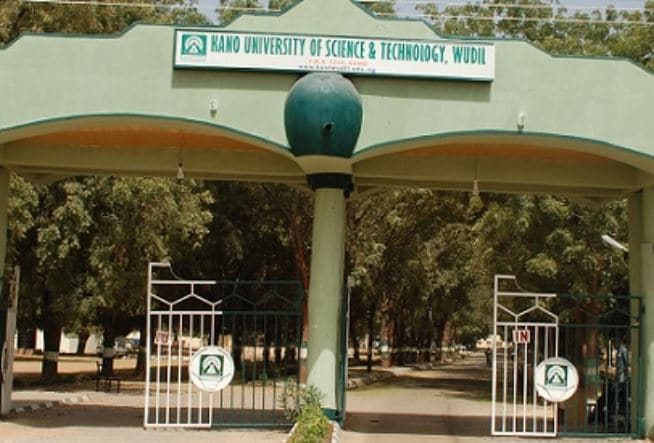 • Say shutting down of national grid, hospitals inhumane, recipe for anarchy
• Say shutting down of national grid, hospitals inhumane, recipe for anarchy
• Address workers’ demands within seven-day window, Labour Party urges FG
• Senate approves 300% salary increase for CJN, other judicial officers
Members of the Tripartite Committee on Minimum Wage, comprising government representatives, organised labour, and the organised private sector, resumed talks, yesterday, on a new minimum wage for Nigerian workers.
This happened as lawmakers in the House of Representatives came down hard on organised labour for shutting down essential services, especially the national grid and hospitals, during the recent industrial action that lasted more than 24 hours.
While most of the lawmakers who spoke at a plenary presided over by the Deputy Speaker, Benjamin Kalu, maintained that industrial actions and dissent are fundamental rights within the democratic space that must be protected, they argued that the way labour conducted itself showed it lacked empathy for Nigerians.
Meanwhile, the Federal Government at the committee meeting, which reconvened at Nicon Luxury Hotel in Abuja, was represented by Minister of Finance, Wale Edun; Minister of Budget and National Planning, Atiku Bagudu; Minister of Labour, Nkeiruka Onyejeocha, and representatives of the Secretary to the Government of the Federation, alongside the Head of Service of the Federation.
President of Nigeria Labour Congress (NLC), Joe Ajaero, and his Trade Union Congress (TUC) counterpart, Festus Osifo, attended on behalf of the organised labour.
Director General of the Nigeria Governors’ Forum, Abdulateef Shittu, was present, although none of the state governors was there at the time of filing this report.
At the plenary, the lawmakers bore their minds while debating a motion on ‘Urgent need to consider the imperative of fixing a living wage for Nigerian workers to ameliorate current economic hardship’, moved by Isa Ali, the Minority Whip and member representing Balanga/Billiri constituency in Gombe State.
Recall that NLC and TUC had “relaxed” the strike action for one week to allow the conclusion of negotiations with the government.
Until it was suspended on Tuesday morning, millions of Nigerians remained without electricity. Also, hospital workers were not available to attend to patients, and many flights were cancelled at the country’s busiest airports in Lagos and Abuja, leaving passengers stranded.
The Deputy Speaker drew the attention of his colleagues to the Trade Dispute Act, which, he said, restrains labour unions from shutting down certain sectors during industrial action.
Kalu said this after Obuku Oforji, a member representing Yenagoa/Kolokuma, backed the organised labour’s decision to shut down the electricity and the aviation sector.
Oforji said: “Why are we apportioning blame to labour? Already, even members of the labour unions cannot access power. It is meant for people alone in government. For me, I am in support of the electricity and aviation industries they shut down. Let’s consider an increase in the minimum wage. But I want labour to be sensitive to something in the country because inflation is rising. While we want an increase in minimum wage, we should do it in line with the economy, so we won’t overshoot inflation.”
Interjecting, the Deputy Speaker asked the lawmaker to be mindful of Section 31 (6) of the Trade Unions Act, which, he said, prescribed conditions trade unions should meet before urging members to go on strike, especially when the employee is engaged in the provision of essential services.
He said: “A lawmaker must speak according to the law. The law grants workers rights to strike but there are limitations. You can find that in Section 31 of the Trade Dispute Act. It restricts strikes in essential services. So, it is not in line when we, as lawmakers, are saying they acted well when they acted in variance.
“Section 31(6) prohibits workers from engaging in strike if they are providing essential services which include public service, supply of electricity, power, water and fuel.
“This is our law. According to the Trade Dispute Act, you can’t wake up and say the radio should not work. It is anarchy. It also says public health services, like hospitals, fire service… Their disruption is seen as having severe consequences.”
The Minority Leader, Kingsley Chinda, also urged his colleagues to speedily amend the minimum wage bill, like they did the national anthem, saying if President Bola Tinubu refuses to assent to it, the National Assembly should override him.
The lawmaker representing Obio/Akpor Constituency, Rivers State, however, aligned with his colleagues when he said labour overstepped its boundaries by shutting down the grid.
Chinda said: “Security and welfare are the primary purposes of the government. Can we say, as a government, we have successfully provided that primary purpose? Have we provided security and welfare? The answer is no. Someone earns N50,000, and you think the person can depend on his salary. It is not possible. How much is transport and rent?
“Let’s provide for welfare by providing a living wage for tomorrow. It is not good when the government is talking about minimum wage instead of living wage. I will commend labour for shelving the strike in the interim. I will also say, sometimes, when we embark on these actions, we should not overstep boundaries. Shutting down power does not make sense.”
In a related development, the Labour Party (LP) appealed to the Federal Government to address the request of Nigerian workers within the seven-day window for renegotiation of the new minimum wage.
Lagos State Publicity Secretary of the party, Mrs Olubunmi Odesanya, made the plea in an interview with the News Agency of Nigeria in Lagos, yesterday.
Odesanya said: “Basically, the request of the workers should be addressed. We are not saying the Federal Government should pay N494,000 as minimum wage, but they should seriously look at their request. Both the government and the labour unions should come to a midpoint to reflect today’s realities. Nigerian workers deserve more than they are currently getting because of the country’s inflation rate, which is over 33.3 per cent.”
According to her, the cost of living for workers and Nigerians generally has increased so much that many are struggling to survive under the current economic crisis. She said the leadership must do more to reduce the cost of governance and channel more funds to alleviate the suffering of the people.
“A paltry minimum wage of N30,000 for Nigerian workers, or should we say the N60,000 being proposed is far too low to survive in this country. A bag of rice is about N80,000 now. Nigerians cannot even touch pepper and tomatoes.”
Also, the Senate, yesterday, approved a bill that grants a 300 per cent salary increase for judicial officers in the country.
This followed the consideration and adoption of an executive bill by President Bola Tinubu, which sought to provide new salaries and allowances for judicial officers and workers in the country.
Tinubu said the bill seeks to prescribe improved salaries and allowances as well as other fringe benefits for judicial officers and workers.
The bill forwarded by the President is titled ‘A Bill for an Act to Prescribe the Salaries, Allowances and Fringe Benefits of Judicial Office Holders in Nigeria and for Related Matters’.
The bill provides a total monthly package of N5,385,047.26 for the Chief Justice of Nigeria (CJN). Justices of the Supreme Court are to earn N4,213,192.54, while the President of the Court of Appeal gets N4,478,415.78.
Also, justices of the Court of Appeal are to earn a monthly package of N3,726,665.40, while the Chief Judge of the Federal High Court, President of the National Industrial Court, Chief Judge of the FCT High Court, Grand Khadi, FCT Sharia Court of Appeal, President of Customary Court of Appeal, Chief Judge state High Court and Grand Khadi of State Sharia Court of Appeal and President of state Customary Court of Appeal are to earn N3,527,022.61 monthly.













